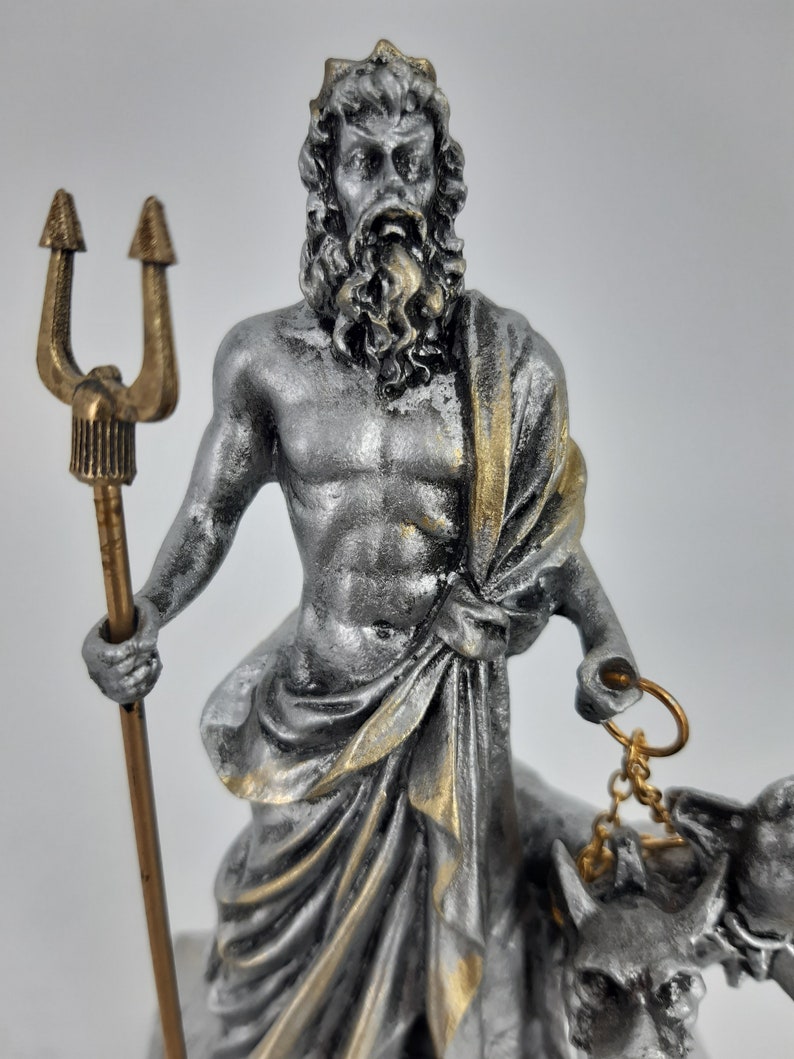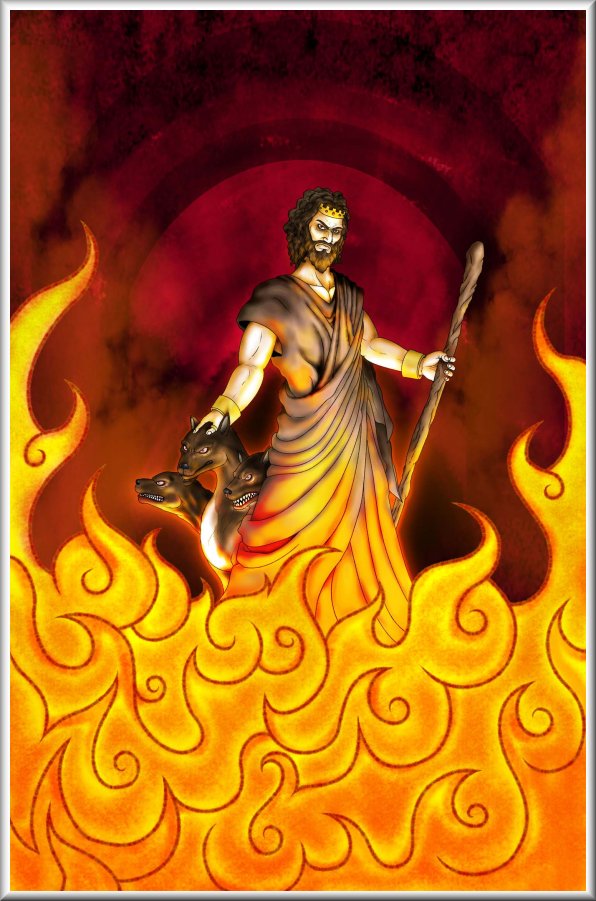

This was where the worst sinners were sent and it was deep beneath the Underworld. and daughter has been a common theme in mythology from Greece to Indonesia. Every day here was exactly the same for all of eternity. Goddess Persephone becoming wife of god of Underworld Hades, despite Zeus. It was neither a good nor a bad place to be. This is where the souls of the ordinary were sent.

It featured green grass, music, and games. It was a happy island for good people and heroes. The first option was Elysian Fields, which was the closest thing the ancient Greeks had to a “heaven”. They decided where the final destination for the soul would be of three places. These judges were Minos, Aeacus, and Rhadamanthus. Next came the Dividing Road where three judges stood. Cerberus would eat anyone who tried to leave. No one was allowed to leave the Underworld for all of eternity. Once across the river they met a three headed dragon tailed dog-named Cerberus who guarded the gates. Eventually, they were allowed in through the entrance for poor people and had to row the boat. If someone didn’t have any coins, they were left to wander the shoreline for 100 years. People needed to pay him in gold coins to cross, which is why the Greeks buried the dead with gold coins under their tongue. The ferry to cross was operated by Charon. First, they need to cross the River Styx. However, the journey is much more complex than that. When a person died, Hermes led their soul to the Underworld. The souls of people who had died were sent here. He ruled the Underworld, also known as the Kingdom of the Dead, which was down below the surface of the Earth and had no sunlight. Zeus became the God of the Skies, Poseidon became the God of the Sea, and Hades became the God of the Underworld and was known as the King of the Dead. Human heroes - including Heracles (aka Hercules), the adventurer who performed 12 impossible labors for King Eurystheus (and was subsequently worshipped as a god for his accomplishment) Pandora, the first woman, whose curiosity brought evil to mankind Pygmalion, the king who fell in love with an ivory statue Arachne, the weaver who was turned into a spider for her arrogance handsome Trojan prince Ganymede who became the cupbearer for the gods Midas, the king with the golden touch and Narcissus, the young man who fell in love with his own reflection - are just as significant.Written by in Greek Mythology Comments Off on All About Hades and the UnderworldĪfter Zeus and his brothers, Poseidon and Hades, defeated the Titans they divided up the world. Greek mythology does not just tell the stories of gods and goddesses, however. Eros (Cupid): god of sex and minion to Aphrodite.Hestia (Vesta): goddess of home and family.Other gods and goddesses sometimes included in the roster of Olympians are: Cronus and Rhea, two important titans, gave birth. Hermes (Mercury): god of travel, hospitality and trade and Zeus’s personal messenger Hades early childhood determined his reputation as a god, and his eventual title as Lord of the Underworld.Hephaestus (Vulcan): god of fire, metalworking and sculpture.Dionysus (Bacchus): god of wine, pleasure and festivity.Demeter (Ceres): goddess of agriculture and grain.Athena (Minerva): goddess of wisdom and defense.Artemis (Diana): goddess of hunting, animals and childbirth.Apollo (Apollo): god of prophesy, music and poetry and knowledge.Aphrodite (Venus): goddess of beauty and love.Hera (Juno): the queen of the gods and goddess of women and marriage.Zeus (Jupiter, in Roman mythology): the king of all the gods (and father to many) and god of weather, law and fate.Instead, the earliest Greek myths were part of an oral tradition that began in the Bronze Age, and their plots and themes unfolded gradually in the written literature of the archaic and classical periods of the ancient Mediterranean world. There is no single original text, like the Christian Bible or the Hindu Vedas, that introduces all Greek myths’ characters and stories. WATCH: Clash of the Gods on HISTORY Vault Sources of Greek Mythology While many of these myths are fanciful tales, such as the legends of greedy King Midas or heroic Hercules, other stories like the Trojan War epic have a basis in historical fact. Greek myths explained everything from religious rituals to the weather, and gave meaning to the world that people saw around them. Ancient Greek mythology is a vast and fascinating group of legends about gods and goddesses, heroes and monsters, warriors and fools, that were an important part of everyday life in the ancient world.


 0 kommentar(er)
0 kommentar(er)
